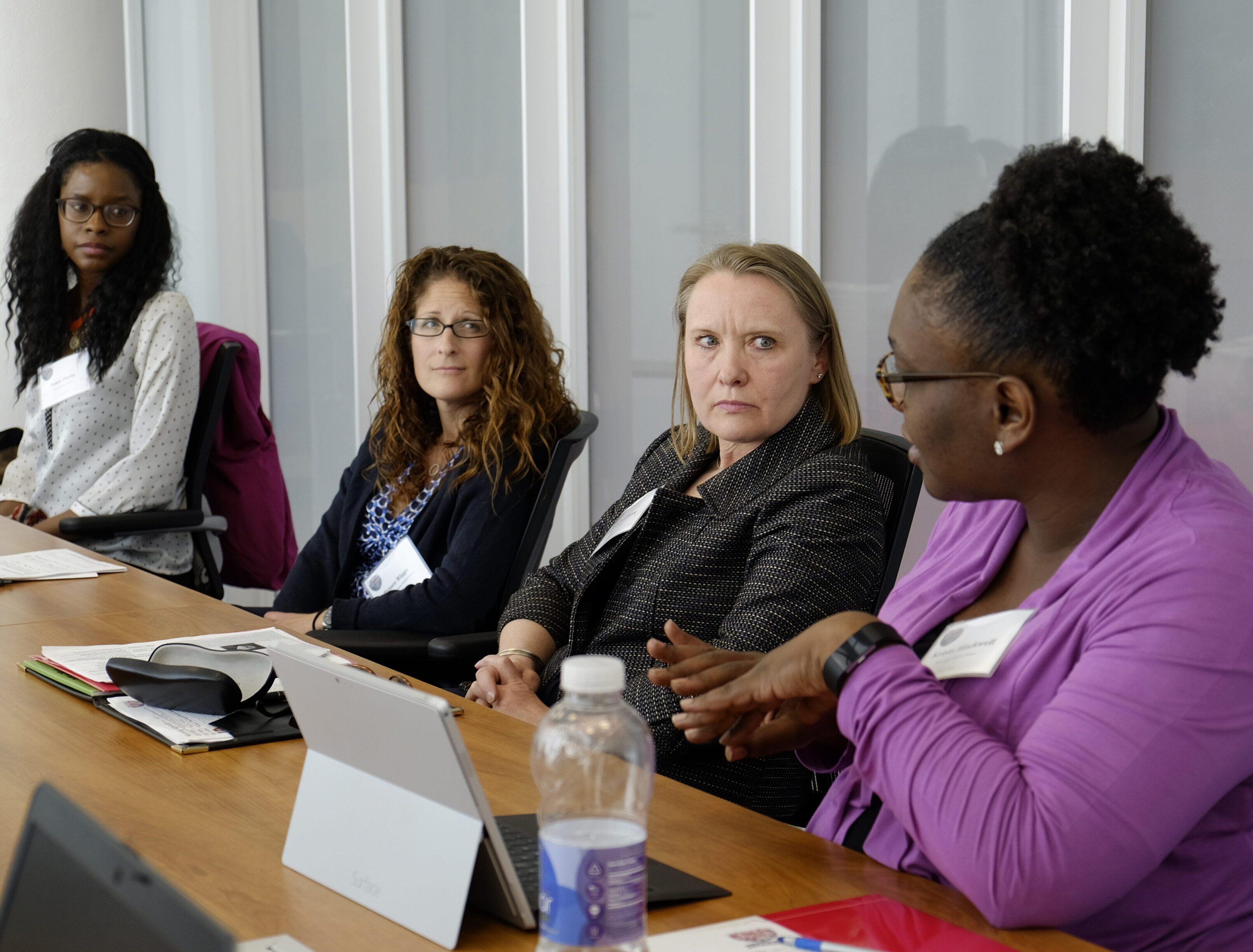RBHS Faculty Mentoring Program
How do we define mentoring?
A collaborative learning relationship that proceeds through purposeful stages over time and has the primary goal of helping mentees acquire the essential competencies needed for success in their chosen career. It includes using one’s own experience to guide another person through an experience that requires personal and intellectual growth and development.
Each RBHS Unit has a faculty development leader responsible for the mentoring program at their respective units.
Goals of the Faculty Mentoring Program:
- Improve faculty productivity in their respective academic tracks
- Assist faculty with career advancement
- Increase career satisfaction for all faculty
- Improve faculty recruitment and retention
- Promote professionalism
- Increase faculty diversity
- Effect a culture change using mentoring to advance RBHS missions
Faculty Mentoring Program Elements:
- Mentor and mentee training
- Engagement of entire faculty
- Networking events (at the RBHS and school/unit level)*
- Symposia and forums*
- Individual Development Plan (IDP)
- Mentor-Mentee Agreement
- Accountability
*Check the RBHS Events Calendar for upcoming programs and events.
Who are the mentors?
- Associate Professors and above
- Supervisor should not be the sole mentor
- If the direct supervisor is the most/only appropriate mentor for a particular faculty, another “primary” mentor is needed, and the supervisor can be part of the mentoring team or committee
- A mentee can have more than one mentor, but one primary mentor to review and sign off on mentee’s Individual Development Plan
- Mentor need not be in the mentee’s department or school
- New faculty recruits: mentees to be involved in choosing their mentors within 6 months of initial appointment
Who are the mentees?
- Faculty in academic ranks up to and including Associate Professor
- Can have more than one mentor
- Should choose their mentors within 6 months of initial appointment
Key elements for an effective mentoring relationship:
- Interpersonal skills: active listening, aligning expectations, building trust
- Psychosocial skill: motivating and developing a sense of belongingness
- Sponsorship skills: fostering independence, promoting professional development
- Culturally-focused skills: promoting inclusion, reducing bias and stereotypes
- Academic track-specific skills: knowledge about research, clinical care, education
- Bidirectional relationship between mentor and mentee based on trust and respect
Mentor Responsibilities:
- Meet with mentees at least twice per year. While mentees are responsible for initiating these meetings, the mentor is also responsible for ensuring that the meetings take place
- Be available to the mentee as needed should urgent matters arise
- Establish expectations and clearly communicate them to the mentee
- Put mentees’ interest above self-interest
- Listen to and consider the expectations of their mentee
- Teach by example
- Assess the mentee’s knowledge and skill level and adjust the mentoring process accordingly
- Encourage and motivate mentees to move beyond their comfort zone
- Provide specific and timely feedback including strengths and assets, as well as areas for growth, development, and enhancement. Feedback on potentially harmful behaviors or attitudes is needed when appropriate.
- Consider how differences in culture and identity may affect the relationship
- Review all relevant material (e.g. CV, publications, abstracts, summary of grant proposals, promotion package, Individual Development Plan provided by the mentee prior to meetings
- Become familiarized with the Appointments and Promotions Guidelines for the mentee’s academic track at RBHS
- Help mentees set appropriate career goals and advise them of the specific requirements for promotion in their academic track
- Encourage and help facilitate scholarly activities including publications, grants, introduction to potential collaborators, enrollment in professional development programs, career advice, allocation of effort, conferences, study sections, presentations, and nominations for appropriate awards and society memberships.
Mentee Responsibilities:
- Review your offer letter to obtain the name of your mentor(s). Identify mentor(s) in consultation with your supervisor if you are not satisfied with your current mentoring relationship or need new/additional mentor(s).
- Be respectful to mentors
- Take initiative and make arrangements to meet with your mentor(s) at least 2X per year
- Complete the Individual Development Plan (IDP) to be discussed and perhaps revised at the mentor/mentee meetings
- Provide relevant documents (e.g. updated CV, publications, abstracts, summary of grant proposals, promotion package, IDP) to be reviewed by mentors at least one week prior to each meeting
- Familiarize yourself with your academic track and A&P Guidelines
- Provide mentor with feedback
- Participate in faculty development workshops and seminars
Individual Development Plan (IDP):
The IDP is a Process
- A planning process that identifies professional development needs and career objectives for the mentee
- It facilitates communication between mentees and mentors
The Four Steps of the IDP Process Include:
- Assessment – looking back and taking stock
- What have I accomplished?
- Assess skills, values, and interests
- Career Exploration
- What are my career goals?
- Goal Setting
- What will I accomplish during a specified time period (e.g. months, years)?
- Implementation
- How will I engage my mentors to help me accomplish all that I must do?
The IDP is also a Product
- Written document
- Help identify short-term (6-12 months) and long-term (3-5 years) goals
- What the mentee wants to pursue and how – along with what the mentor expects and when
If you have questions about the mentoring program, please contact the faculty development leader at your school or Dr. M. Maral Mouradian, RBHS Vice Chancellor for Faculty Development.

